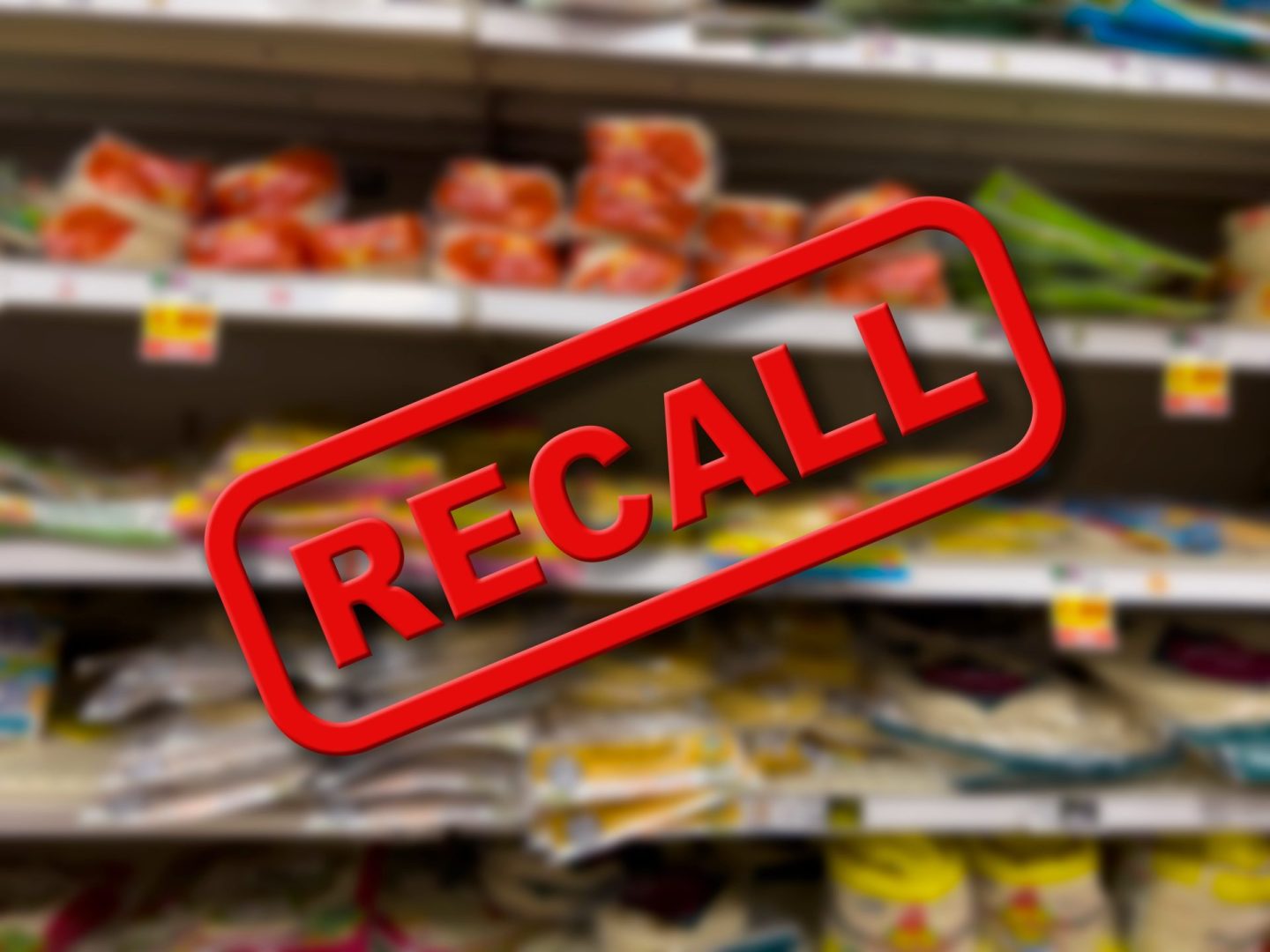Two beloved food retailers have issued urgent recalls this week that could affect thousands of households across multiple states, prompting immediate action from consumers who may have these potentially dangerous products sitting in their refrigerators and pantries right now. The recalls involve popular cheese curds from Trader Joe’s and specialty chocolate truffles from Kilwins, both carrying serious health risks that demand immediate attention.
These recalls represent significant health concerns that extend far beyond simple quality control issues. The contamination risks associated with these products could lead to severe illness, hospitalization, and in vulnerable populations, potentially life-threatening complications that make swift consumer response absolutely critical.
The timing of these recalls during peak summer shopping season amplifies their impact, as families stock up on specialty foods for gatherings, vacations, and everyday consumption. Understanding the specific details of each recall enables consumers to take appropriate protective measures while avoiding panic about food safety in general.
Trader Joe’s faces serious listeria contamination threat
Trader Joe’s issued an urgent recall for Face Rock Creamery’s Vampire Slayer Garlic Cheddar Curds after discovering potential listeria monocytogenes contamination in the 6-ounce packages. This bacterial contamination poses particularly severe risks for pregnant women, elderly individuals, young children, and anyone with compromised immune systems.
The recalled cheese curds carry the UPC code 8 51222 00528 7 and feature lot numbers 20250519VS01 and 20250519VS02. Consumers can locate these identifying numbers on the product packaging to determine whether their purchase falls within the affected batch. The use-by date of August 29, 2025, appears prominently on the package front.
Distribution of the contaminated cheese curds was limited to specific regions in Northern California and Northern Nevada. In California, the affected areas include Monterey, Fresno, and all Trader Joe’s locations north of these cities. Nevada distribution concentrated in Carson City, Reno, and Sparks locations.
Listeria monocytogenes represents one of the most dangerous foodborne pathogens, capable of surviving refrigeration temperatures and even freezing conditions. The bacteria can multiply slowly in cold environments, meaning contaminated products become more dangerous over time rather than safer. This characteristic makes immediate disposal or return of the recalled cheese curds essential for consumer safety.
The infection timeline for listeriosis can extend from several days to two months after consuming contaminated products, making it difficult for consumers to connect their illness with the contaminated food source. Early symptoms often resemble flu-like illness, including fever, muscle aches, nausea, and diarrhea, which can progress to more serious complications.
Kilwins chocolate recall affects pecan allergy sufferers
Kilwins voluntarily recalled their Mocha Truffles across nine store locations in seven states due to undeclared pecans in the chocolate formulation. This undisclosed allergen poses serious risks for individuals with tree nut allergies, particularly those sensitive to pecans specifically.
The recall affects Mocha Truffles sold individually from display cases as well as various retail packaging configurations. The Family Assortment packages include 9-ounce containers with barcode 4564, 14-ounce packages marked 4565, 28-ounce boxes labeled 4566, and 42-ounce containers bearing barcode 4567.
Truffle-specific packaging includes the Truffle Assortment 9.5-ounce package with barcode 4574, an 8-ounce version marked 43109, individual Mocha Truffles in 4.75-ounce containers labeled 43110, and Truffle Assortment 4.75-ounce packages bearing barcode 44121.
The affected Kilwins store locations span from Alabama to New Hampshire, including the Orange Beach, Alabama location at 4751 Main Street, Unit F113. Florida has multiple affected stores in Coral Springs, Vero Beach, and Winter Park. The Thomasville, Georgia location joins stores in Annapolis, Maryland, Portsmouth, New Hampshire, Wilmington, North Carolina at 16 Market Street, and Alexandria, Virginia.
For consumers without pecan allergies, the chocolate products pose no additional health risks beyond the undeclared allergen issue. However, individuals with tree nut sensitivities could experience reactions ranging from mild discomfort to severe anaphylactic shock requiring emergency medical intervention.
Understanding the serious health implications of these recalls
Listeria infections present particularly grave concerns for vulnerable populations, with pregnant women facing risks of miscarriage, stillbirth, premature delivery, or life-threatening infection in newborns. The bacteria can cross the placental barrier, directly threatening fetal development and survival.
Elderly adults and individuals with weakened immune systems from conditions like cancer, diabetes, liver disease, or kidney disease face heightened risks of severe listeriosis complications. These can include blood poisoning, meningitis, and other central nervous system infections that require intensive medical treatment.
Even healthy adults can experience significant illness from listeria exposure, though they typically recover without long-term complications. The severity and duration of symptoms vary considerably based on individual immune response and the amount of contaminated food consumed.
Pecan allergies, like other tree nut allergies, can trigger immediate and severe reactions in sensitive individuals. Anaphylaxis represents the most serious potential outcome, causing breathing difficulties, cardiovascular collapse, and potentially fatal complications without prompt epinephrine treatment.
Cross-contamination during chocolate production likely explains the presence of pecans in products not intended to contain them. Manufacturing facilities that process multiple types of nuts must implement rigorous cleaning protocols between product runs to prevent such contamination events.
Immediate action steps for affected consumers
Consumers who purchased the recalled Trader Joe’s Vampire Slayer Garlic Cheddar Curds should immediately check their refrigerators for the affected products. The distinctive vampire-themed packaging makes identification relatively straightforward, but checking lot numbers and UPC codes ensures accuracy.
Do not attempt to smell, taste, or cook the cheese to determine its safety. Listeria contamination is not detectable through sensory evaluation, and cooking temperatures typically used for cheese may not eliminate all bacterial contamination. Immediate disposal in sealed garbage bags prevents accidental consumption by family members or pets.
Alternatively, consumers can return the unopened cheese curds to any Trader Joe’s location for a full refund without requiring a receipt. The company has instructed all stores to accept returns of the recalled products regardless of purchase date or receipt availability.
Kilwins customers with pecan allergies should immediately locate and dispose of any Mocha Truffles purchased from the affected store locations. Even small amounts of pecan contamination can trigger severe allergic reactions in highly sensitive individuals.
Consumers without pecan allergies may choose to continue enjoying the chocolate products, though returning them for a refund remains an option. Kilwins has committed to providing full refunds for all recalled products regardless of how much has been consumed.
Monitoring for symptoms and seeking medical attention
Anyone who consumed the recalled Trader Joe’s cheese curds should monitor for listeriosis symptoms over the next two months. Early warning signs include fever, muscle aches, nausea, and diarrhea, which may progress to more severe symptoms like headache, stiff neck, confusion, or loss of balance.
Pregnant women who consumed the recalled cheese should contact their medical providers immediately, even without symptoms. Early medical consultation allows for appropriate monitoring and prompt treatment if infection develops. Medical providers can recommend specific testing and preventive measures based on individual circumstances.
Individuals with compromised immune systems should similarly seek immediate medical consultation after consuming recalled products. Their medical providers may recommend prophylactic treatment or enhanced monitoring protocols based on their specific medical conditions and risk factors.
Anyone experiencing severe allergic reactions after consuming Kilwins Mocha Truffles should seek emergency medical attention immediately. Symptoms requiring urgent care include difficulty breathing, swelling of face or throat, rapid pulse, dizziness, or widespread hives.
Food safety practices for ongoing protection
These recalls highlight the importance of maintaining current awareness of food safety alerts and recalls. Government health agencies regularly update recall databases that consumers can access online or through mobile applications.
Proper food storage practices help minimize contamination risks even when products pass initial safety inspections. Refrigerating perishable items promptly, maintaining appropriate temperatures, and observing expiration dates all contribute to household food safety.
Reading ingredient labels carefully protects individuals with food allergies from unexpected exposures. Manufacturers occasionally change formulations without prominent package notifications, making careful label review essential for sensitive consumers.
Establishing relationships with medical providers familiar with food allergies and foodborne illness helps ensure prompt, appropriate treatment when exposures occur. Having action plans for allergic reactions and knowing when to seek emergency care can save lives during critical situations.
Industry response and prevention measures
Both Trader Joe’s and Kilwins have cooperated fully with regulatory authorities to identify the contamination sources and prevent similar incidents. This collaborative approach helps protect consumers while allowing companies to maintain their reputations for quality and safety.
Face Rock Creamery, the actual manufacturer of the recalled cheese curds, has implemented enhanced testing protocols and facility sanitation procedures to prevent future listeria contamination. These measures include more frequent environmental testing and revised cleaning schedules for production equipment.
Kilwins has reviewed their chocolate production processes to identify how pecan contamination occurred in products not intended to contain tree nuts. Enhanced cleaning protocols between production runs and improved allergen control measures will help prevent similar cross-contamination events.
The food industry continues investing in advanced testing technologies and quality control systems that can identify contamination risks before products reach consumers. These improvements represent ongoing commitments to consumer safety that extend far beyond regulatory compliance requirements.
Long-term implications for consumer confidence
Food recalls, while concerning, demonstrate that safety monitoring systems work effectively to protect public health. The swift identification and communication of these contamination issues prevent more widespread illness and show company commitment to consumer welfare over profit considerations.
Consumers can maintain confidence in the food supply by staying informed about recalls, following proper food handling practices, and supporting companies that prioritize safety over convenience or cost savings. Transparency during recall events often indicates strong corporate safety cultures.
The collaboration between retailers, manufacturers, and regulatory agencies during these recalls exemplifies the multi-layered approach to food safety that protects millions of consumers daily. This system, while not perfect, continues evolving to address emerging risks and contamination sources.
These recent recalls serve as important reminders that food safety remains a shared responsibility between industry and consumers. Staying vigilant, following recall instructions promptly, and maintaining good food handling practices at home all contribute to protecting family health and preventing foodborne illness outbreaks that can affect entire communities.














